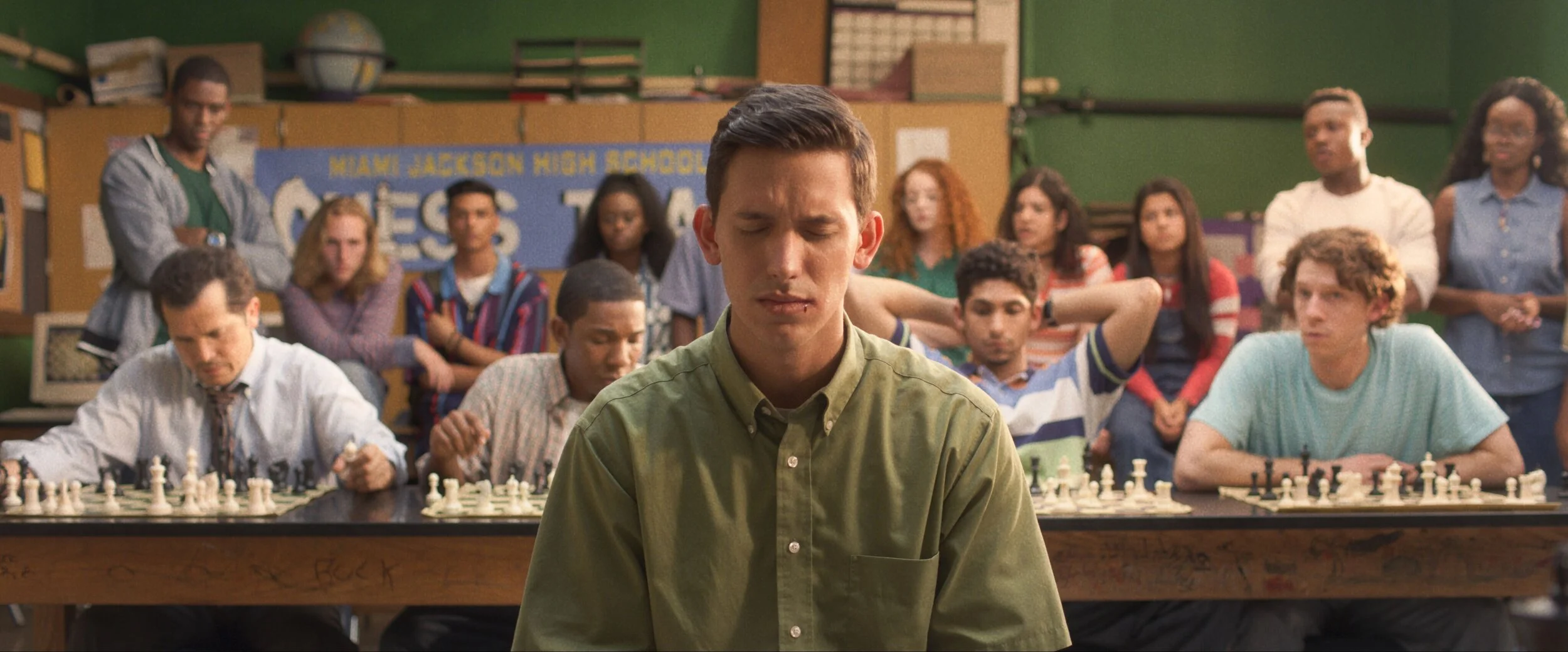SXSW 2020: Critical Thinking
By Andrea Thompson
The good news about the SXSW film that should have been, “Critical Thinking,” is that John Leguizamo knows how to be a damn good director while simultaneously playing a lead role. The not so good news is that screenwriter Dito Montiel is less astute, especially when it comes to those he dubs side characters, some of which didn't have to be shoved aside in the first place. To be fair, Montiel knows more than most writers about getting around those triumphant true story cliches while acknowledging how essential they are in the first place. There is a reason these kinds of films not only keep getting made, but get so much attention, and in many cases, accolades.
The story, which is about the first inner city team to make it to the U.S. National Chess Championship, is also a damn good one. I've never been to Miami, but it seems to capture the city and the 1998 setting fairly well. The movie even rolls with the schmaltz, making Leguizamo's Mario Martinez one of those inspirational teacher who's clearly good at his job, but corny enough to don wigs to entertain as well as educate his students. Fear not though, because “Critical Thinking” doesn't keep all the cliches. Leguizamo doesn't have to convince his students that chess is a worthwhile pursuit in order to put a team together; many of his students take his class because it's an easy high school elective. Some remain unimpressed, but enough of them obviously get invested to make an impact.
Many of those students are struggling with issues such as deportation, English fluency, and homelessness, while others are grappling with more familiar temptations such as drug dealing, or coping with parental disapproval of their chosen sport. The on-screen violence inherent in their surroundings feels real, often exploding out of nowhere with little preparation or provocation. It's another way of doing justice to the victims of it while giving a more sensitive treatment than usual to the odds this team is up against. But that team is also comprised solely of men, with gender expectations going unacknowledged, even as racial dynamics are always present, albeit in a way that refuses to define anyone by them. Yet women and girls once again mostly get love interest stuff to do, when they get any attention at all. It's problematic and hypocritical in a film that makes a point to mention the whitewashing of history, and it gets downright offensive when the only female character who gets any sort of depth is the white principal (Rachel Bay Jones), who is often tone-deaf, but proves to be an ally to Martinez and his students. The aftermath of just where those students ended up isn't fully revealed, but what “Critical Thinking” does choose to focus on at least comes off quite well.
Grade: B-




